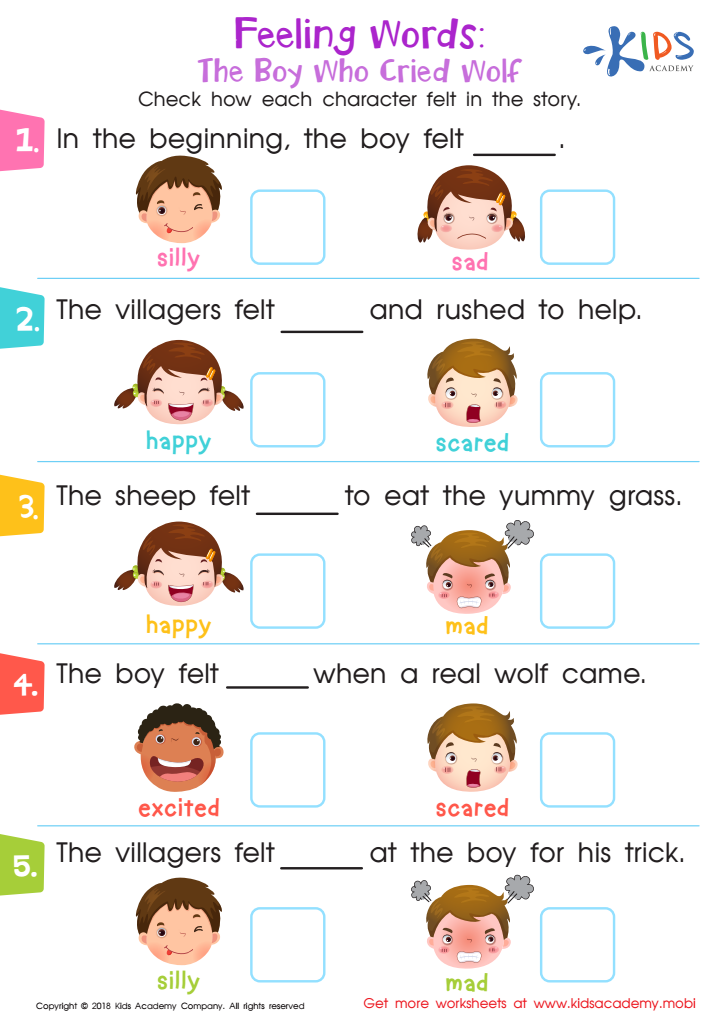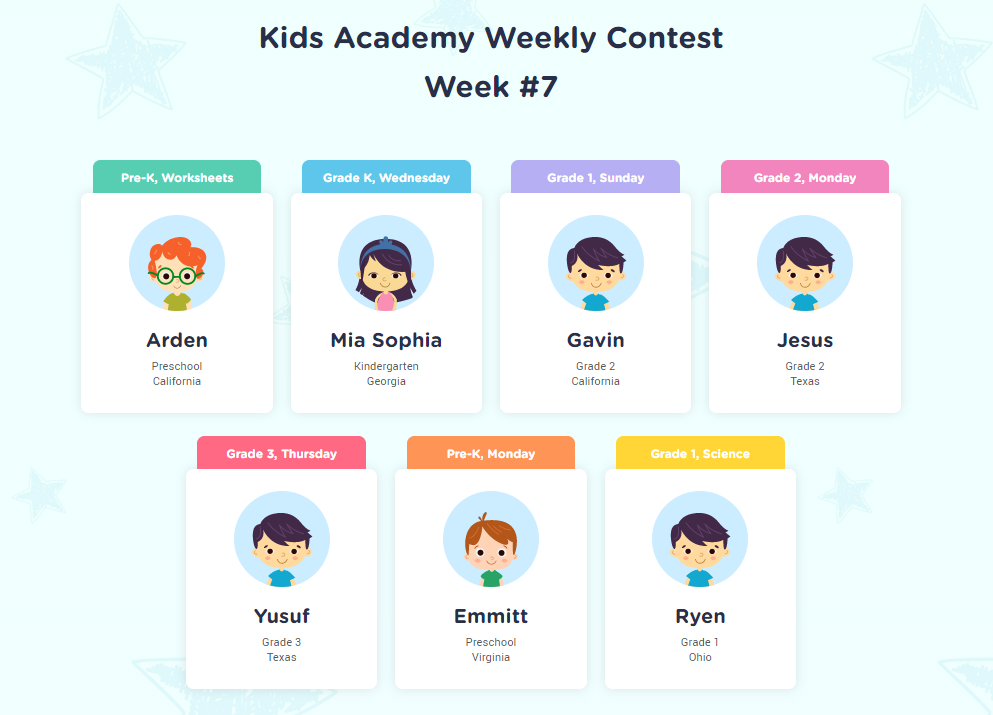Self-expression improvement Worksheets for Kids
1 filtered results
-
From - To


Feeling Words: The Boy Who Cried Wolf Worksheet
Question/Answer
How does the mastery of the Self-expression improvement skill affect a student's performance at an early age?
Mastery of the Self-expression improvement skill at an early age significantly enhances a student's performance by boosting their confidence, improving communication abilities, and fostering creativity. It enables students to articulate thoughts and ideas more effectively, participate actively in discussions, and better understand and express their emotions, contributing to overall academic success and personal development.
What are some effective activities to train students’ Self-expression improvement skill when teaching them about Building Vocabulary?
Effective activities for improving self-expression in vocabulary building include storytelling with new words, creating sentences or short paragraphs using newly learned vocabulary, engaging in debates or discussions on topics using specific vocabulary sets, and journal writing incorporating new terms. Incorporating role-play scenarios and encouraging creative writing, like poems or short stories, also enhance self-expression while expanding vocabulary.
Why is the Self-expression improvement skill important for Grade 1 students?
The self-expression improvement skill is vital for Grade 1 students as it fosters their ability to communicate thoughts, feelings, and ideas effectively. This skill enhances their academic performance, promotes creativity, supports emotional development, and improves social interactions. Early mastery in self-expression sets a foundation for lifelong learning, confidence, and success in personal and academic endeavors.
 Assign to the classroom
Assign to the classroom











